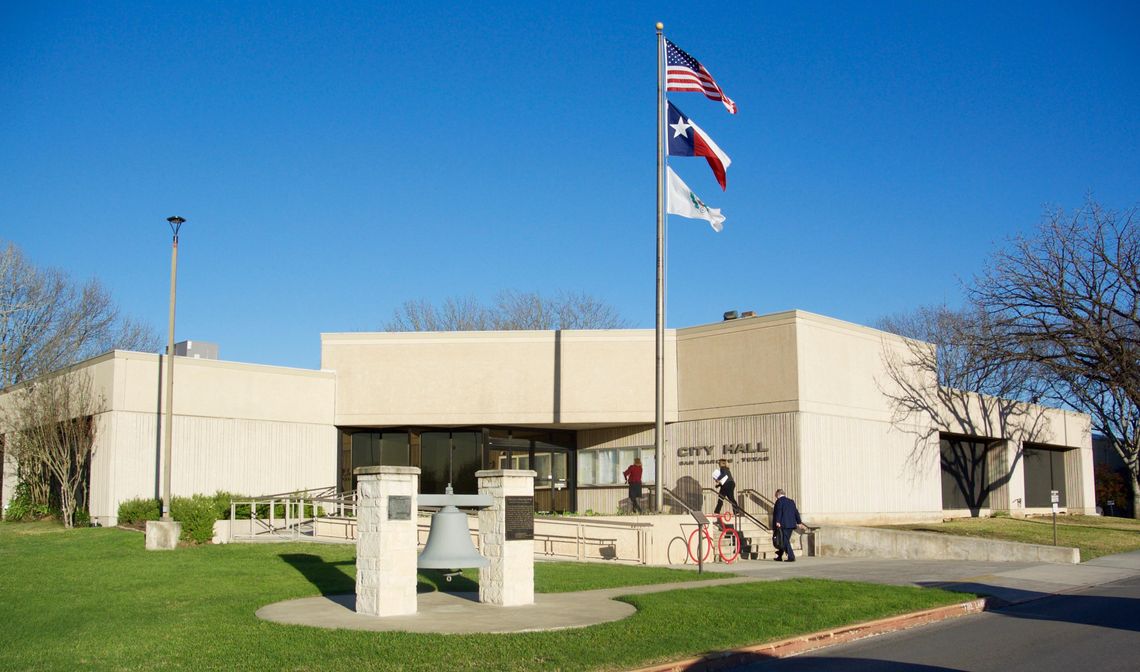Evictions and debt collection proceedings can resume in Texas starting Tuesday, the Texas Supreme Court ordered, after the court temporarily put both on hold during the COVID-19 pandemic.
San Marcos residents, however, are protected by an ordinance adopted April 7 that requires landlords to give tenants 90 days to catch up on any late rent payments or fees before giving them a notice to vacate. The ordinance will be in effect until the city’s disaster declaration expires.
The San Marcos City Council wrote the ordinance to prepare for impending economic impacts of the pandemic and a scenario that has since become a reality where many residents lost their jobs or experienced decreased income and as a result are struggling to pay rent. The ordinance was intended to reduce homelessness during a pandemic which would in turn increase person-to-person spread of COVID-19.
The ordinance still requires tenants to pay past due rent and fees but allows them 90 days to make arrangements.
San Marcos residents should be wary of unlawful eviction threats because the ordinance does not require a tenant to prove why they cannot pay, according to the city’s Community Liaison Lisa Dvorak.
The ordinance does not provide a direct enforcement mechanism except that the eviction could not be filed; due to the application of the law, a Justice of the Peace would not be able to issue an order to appear, according to Judge Beth Smith, Justice of the Peace for Precinct 2.
Smith confirmed the ordinance in San Marcos continues to prevent evictions from being filed without a 90-day notice whereas the rest of Hays County can begin filing evictions..
Both of the Justices of the Peace for Precinct 1, which encompasses San Marcos, could not be reached immediately for comment.
Unfortunately, for those who had been given eviction notices prior to the pandemic, the ordinance does not provide protection. Those hearings had been rescheduled and will resume later this month, with in person hearings starting again June 1.
Following the Texas Supreme Court lifting its pause on eviction and debt collecting proceedings, evictions can be filed as early as May 18, rescheduled hearings can happen as early as May 19 and evictions can begin taking place May 26.
Smith says for her court, hearings have to be scheduled 10-21 days out from the eviction filing date of May 18. “I anticipate some filings on Monday, but by the time the constable serves them, it will be mid-June,” she said.
Smith said one apartment complex in Kyle gave 75 notices to vacate before the Kyle City Council ordered it to be held for 60 days.
There were no rescheduled hearings from before the pandemic in Precinct 2, but there were a couple filings that have been put on hold since the pandemic began, said Smith.
“I usually have five to seven filings a week. We are really encouraging landlords and tenants to work together during this time. It works both ways,” she said.
Smith spoke of single family residential rental units where landlords are paying two mortgages and aren’t receiving rent to pay off their own debt.
There are some federal protections given through the Coronavirus Aid, Relief and Economic Security (CARES) Act. Units and buildings that have federally backed mortgages, including Section 8 housing, are protected from evictions. The new order requires landlords to state whether their properties are subject to this protection. Evictions cannot be initiated for tenants in these housing situations through Aug. 23.
Local housing rights organization Rentstrike SMTX plans to demonstrate while practicing social distancing at the Hays County Municipal Government Building Monday at 1 p.m. to voice that no one should be homeless during a pandemic, according to a spokesperson for the organization.
Whether or not the soon to be heard evictions were caused by economic hardships before or after the pandemic hit, resulting homelessness will still risk increasing person-to-person spread of COVID-19.
sgates
@sanmarcosrecord.com
Twitter: @StephJGates








